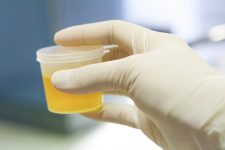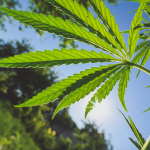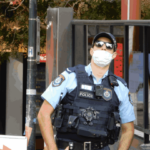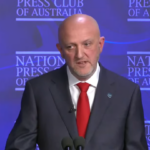Is There a Need for Frequent Drug Testing Throughout the NSW Police Force?

Last week, we reported on the case of Tara Radford, a Queensland Police Officer who was caught at Stereosonic with a line of cocaine and half a tablet of ecstasy.
Ms Radford was one of 139 people arrested over the course of the festival’s Brisbane leg, and she certainly paid for her actions – resigning from the Force shortly after being charged, and being sentenced in court to a four-month good behaviour bond and ordered to undertake a drug diversion program.
Radford is not alone. The last few years have seen a number of Australian police suspended, and some even stood down, following drug charges.
In 2012, Sergeant Wes Bas, a former protocol officer in NSW Police Commissioner Andrew Scipione’s inner sanctum and gay and lesbian liaison officer, was stood down after testing positive for ice. And in Western Australia last year, three officers were stood down after testing positive for the same drug.
WA Police Commissioner Karl O’Callaghan outlined why it’s vital for officers to remain drug-free:
“Officers make critical decisions under duress, and they must not be affected by illicit substances or alcohol… Monday’s day of action by Internal Affairs should send a sobering warning to any officer using illicit substances at any time.”
Police Drug Testing in New South Wales
The NSW Government began implementing drug tests for police officers in the late 1990s, following a recommendation by the Wood Royal Commission. This, and other recommendations, were eventually consolidated into the Police Regulation Act.
The subsection relating to drug testing is found in Part 5, Division 2, Clause 79 of the Act, which outlines the Code of Conduct for police:
“(1) A member of the NSW Police Force must not use any prohibited drug…
(6) A police officer must not, when required under the Act or this Part to do so, refuse or fail:
(a) to undergo a breath test, or
(b) to submit to a breath analysis, or
(c) to provide a sample of urine or hair,
in accordance with a direction given by an authorised person.”
The same clause prohibits police from drinking alcohol while in uniform, taking steroids, and having a blood alcohol content above 0.02 when on duty. However, there are exceptions that allow police to drink while at official events, or with the permission of senior officers.
Following the suspension of Sergeant Bas, the NSW Police Force implemented a tougher testing policy, which has seen random testing expanded to around one-third of the police force each year. However, many believe that this regime is insufficient – that a one-third chance of being tested some time during the year is inadequate, and that frequent testing should occur throughout the Force.
The Professional Standards Unit, which administers drug tests, can either conduct tests on a random basis, for example when they might test an entire station, or on a targeted basis following a tip-off.
The tests require officers give urine, which can detect trace amounts of drugs in their system. If initial indications suggest the presence of drugs, the individual officer can be stood down while their sample undergoes further testing to determine the type of drug, rather than sending them back on duty pending results or suspending them.
The drug unit also conducts around 15,000 alcohol tests on officers each year.
The Shooting of ‘Biggie’
Of the three officers stood down in Western Australia, one was implicated in the shooting of a dog, “Biggie” weeks earlier.
The officer claimed Biggie was aggressive, but CCTV footage of the incident showed that the beloved family pet displayed no such aggression before being shot dead.
Suspicion remains over whether that officer was affected by drugs when he shot Biggie.
Are Random Drug Tests Fair?
Police officers enjoy broad-ranging powers over members of the public, backed up by lethal force. Many of these powers can be exercised by police officers around the clock, whether or not they are on duty.
However, much like NSW roadside drug testing regimes, these tests can pick up substances long after they’ve been ingested, well after the effects of the drugs themselves have worn off.
Some believe random drug testing is a breach of civil liberties, and an intrusion on the personal lives and decisions of employees. According to WorkplaceInfo, an organisation that outlines Australian Industrial Relations decisions:
“It is an accepted principle by industrial courts and tribunals that random testing is an intrusion on the privacy of the individual which can only be justified on health and safety grounds… Beyond that the employer has no right to dictate what alcohol or drugs its employees take in their own time.”
But again, police officers are not like most other employees or public servants, because they are able to exercise their powers – including broad powers of arrest – whether they are on duty or not. They also swear an oath to uphold and enforce the law, and can be called upon to make critical ‘life or death’ decisions at a moment’s notice. For those and other reasons, many believe officers should indeed be tested for illicit drugs – and far more often than they are at present.
Going to court for a traffic offence?
If you are going to court for a traffic offence, call or email Sydney Criminal Lawyers anytime to arrange a free first consultation with an experienced, specialist traffic lawyer who will accurately advise you of your options, the best way forward, and fight for the optimal outcome in your specific situation.






